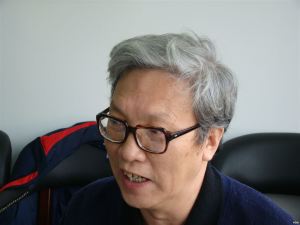 This edition of Article Spotlights from the SEN Archives focuses on Israel and Palestine, after the elections that took place in Israel this month, which saw Binyamin Netanyahu elected for another term in office.
This edition of Article Spotlights from the SEN Archives focuses on Israel and Palestine, after the elections that took place in Israel this month, which saw Binyamin Netanyahu elected for another term in office.
Yitzhak Conforti’s article focuses on the history of territorial thinking in Zionism.
Yitzhak Conforti, Searching for a Homeland: The Territorial Dimension in the Zionist Movement and the Boundaries of Jewish Nationalism, Volume 14, Issue 1, pp. 36-54.
This article addresses the relationship between territorial borders and ethnic boundaries in the Zionist movement. Beginning with the Sixth Zionist Congress in 1903, the distinction between these two components of the Zionist movement rose to the forefront of the Zionist consciousness. The argument over the Uganda proposal revealed the differing preferences of political and practical Zionism. But this argument, which ended with the rejection of the Uganda plan in 1905, did not terminate the discussion of the relationship between ‘the people’ and ‘the land’. The aspiration of Zionism’s central stream to establish a Jewish nation-state in Palestine was challenged by political groups on the right and on the left, each of which emphasized either the ethnic or the territorial component. While Palestinian Zionism reinforced the territorial component during the 1920s and ’30s, the 1937 partition plan of the Peel Commission returned the issue of the relationship between the people and the land to the centre ring of political decision-making. This article demonstrates that the attempt of the central stream of the Zionist movement to balance between the people and the land, between the ethnic and the territorial components, defined the boundaries of Zionism during the period discussed.
Katie Attwell’s essay focuses on the ‘self’ and ‘other’ perceptions of adherents to ‘alternative national identity discourses’ among Israel’s Jewish citizens.
Katie Attwell, Bent Twigs and Olive Branches: Exploring the Narratives of Dissident Israeli Jews, Volume 12, Issue 1, pp. 20-37.
This article explores symbolic boundaries and identity-formation of the ‘ethnonational Us’, using narrative analysis of eleven Israeli-Jewish dissidents. The hegemonic nationalist discourse in Israel – Zionism – constructs the dissidents’ identities as the ‘Virtuous Us’, yet these individuals genuinely try to connect with the ‘Demonized Palestinian Other’. I suggest that the dissidents attempt to use alternative national identity discourses to overcome symbolic boundaries. I highlight inconsistencies within individual dissidents’ narratives and attribute them to the employment of multiple discourses, suggesting that some discourses fail to coherently reconcile ‘national’ history with the well-being of the Other, whilst others repel dissidents by appearing to negate or destroy their identities. The dissidents, therefore, cannot use the available discourses to fully overcome symbolic boundaries. Only the hegemonic nationalist discourse can offer a self-evident and compelling enunciation of the dissidents’ political reality, leading one insightful dissident to conclude that there is ‘no way out’ of his dilemma.
Nissim Leon’s piece addresses the role of the religious ultra-nationalist camp as it has developed in Israel’s more recent history.
Nissim Leon, Ethno-religious Fundamentalism and Theo-ethnocratic Politics in Israel, Volume 14, Issue 1, pp. 20-35.
This article addresses the transition of a fundamentalist confrontational religious ideology into an assertive, religio-nationalist ideology by the case of the ethno-Ultra-Orthodox (haredi) Shas party in Israel. Alongside the haredi proclivity towards insularity, we also detect, in recent decades, two new trends within the haredi mainstream. First, we see increasing numbers of haredim (Ultra-Orthodox Jews) integrating into different frameworks that are situated outside of the haredi enclave: the job market, the army, welfare and charity organizations, and more. A second trend, which I will elaborate upon here, is a fundamentalist religious interpretation of elements of Israeli national identity. This trend seeks to view Jewish law, in its orthodox interpretation, as a source for the conservation and maintenance of Jewish identity in Israel: firstly, through the turning of haredism into a dominant factor in the religio-communal arena in Israel; and secondly, through assuming responsibility for demarcating the boundaries of the Jewish collective.
Article Spotlights compiled by Dr. Shane Nagle


![Israel-Palestine: Is it even relevant anymore? Pro-Palestine demonstrators wearing Netanyahu masks protest in front of the Washington Convention Center [AP]](http://www.aljazeera.com/mritems/imagecache/mbdxxlarge/mritems/Images/2015/3/2/e44473554507412789a79222fd2e8de8_18.jpg)

